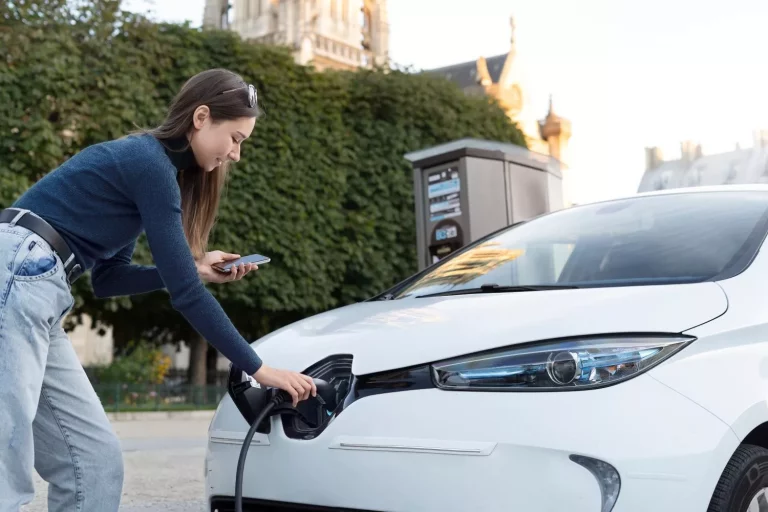Knowing how to handle customer objections to electric cars is a common challenge for dealerships today. Electric mobility is no longer a future promise — it’s a present reality. Yet despite the steady rise in EV sales, many customers are still hesitant to make the switch.
As an automotive marketing professional or dealership sales consultant, knowing how to handle customer objections to electric cars has become an essential skill. Understanding those mental barriers — and knowing how to respond with clear, up-to-date, value-driven arguments — often makes the difference between a lost sale and a loyal customer.
The Price of Electric Cars: Perception vs. Real Value
One of the first customer objections to electric cars revolves around price. Many buyers still perceive EVs as significantly more expensive than their combustion counterparts. While this may be true when comparing upfront costs, the key is to shift the conversation toward total cost of ownership.
Fuel savings, reduced maintenance, and government incentives dramatically change the equation. Handling this objection means educating customers on the medium and long-term value — not just the sticker price.
Range Anxiety: The Persistent Myth
Another frequent customer objection to electric cars is driving range. Many still believe EVs can’t cover long distances without constant recharging. Here, it’s essential to provide real context and data. Most daily commutes fall well under 100 km (62 miles), and modern EVs typically exceed 400 km (250 miles) on a single charge.
Fast-charging stations are becoming more widespread. In this case, handling the objection means proving that range is no longer a real limitation — especially when tailored to the brand and specific model you’re selling.
Charging Infrastructure: Between Anxiety and Misinformation
Closely tied to range is the concern about charging infrastructure. Customers unfamiliar with EVs often imagine a sparse, unreliable network. So, handling this objection involves demonstrating that — while challenges remain — the network is expanding monthly, and tools like mobile apps make it easy to locate and plan charging sessions.
Don’t forget to highlight home or workplace charging solutions, which reduce reliance on public stations dramatically.
Battery Life and Longevity: A Common Concern
When thinking about how to handle customer objections to electric cars, battery concerns often come up. The belief that EV batteries degrade quickly or have limited lifespans is still widespread.
Here, the key is to counter perception with data. Most EV manufacturers offer battery warranties of eight years or more, and recent studies show high retention of battery capacity over time.
Handling this objection requires talking about warranty coverage, battery technology, and the consistent improvements in EV battery performance.
Maintenance and Hidden Costs
Some customers assume EVs are more expensive to maintain due to their advanced tech. The truth is quite the opposite. With fewer moving parts, no oil changes, and no clutch systems to replace, electric vehicles offer simpler, more affordable maintenance.
Handling this objection means going beyond technical explanations and focusing on the actual user experience: fewer service visits, shorter downtimes, and more predictable maintenance costs.
Trust in the Technology: An Emotional Barrier
Confidence is a major factor in handling customer objections to electric cars. There’s an emotional — not always rational — barrier where customers still see EVs as a risky, unproven choice. Despite years of EVs on the market, many still view the technology as “too new.”
In this case, handling objections requires empathy. Build emotional connections, share real success stories, and reinforce the idea that the transition may feel big — but it’s happening, and it’s here to stay.
Digital Tools to Support the Sale
As a sales professional, having a strong digital toolkit helps you handle objections to electric cars more effectively. Use virtual configurators, cost-of-ownership calculators, comparison tools, and real-time range estimators to back up your message with hard data.
The Big Picture
Knowing how to handle customer objections to electric cars doesn’t just increase your chances of closing a sale it positions you as a trusted advisor during a major shift in the automotive industry.
Customer doubts aren’t dead ends; they’re opportunities. Opportunities to inform, support, and prove that the future of mobility is not only possible it’s already happening. And when properly explained, it’s more accessible, efficient, and exciting than most people imagine.
